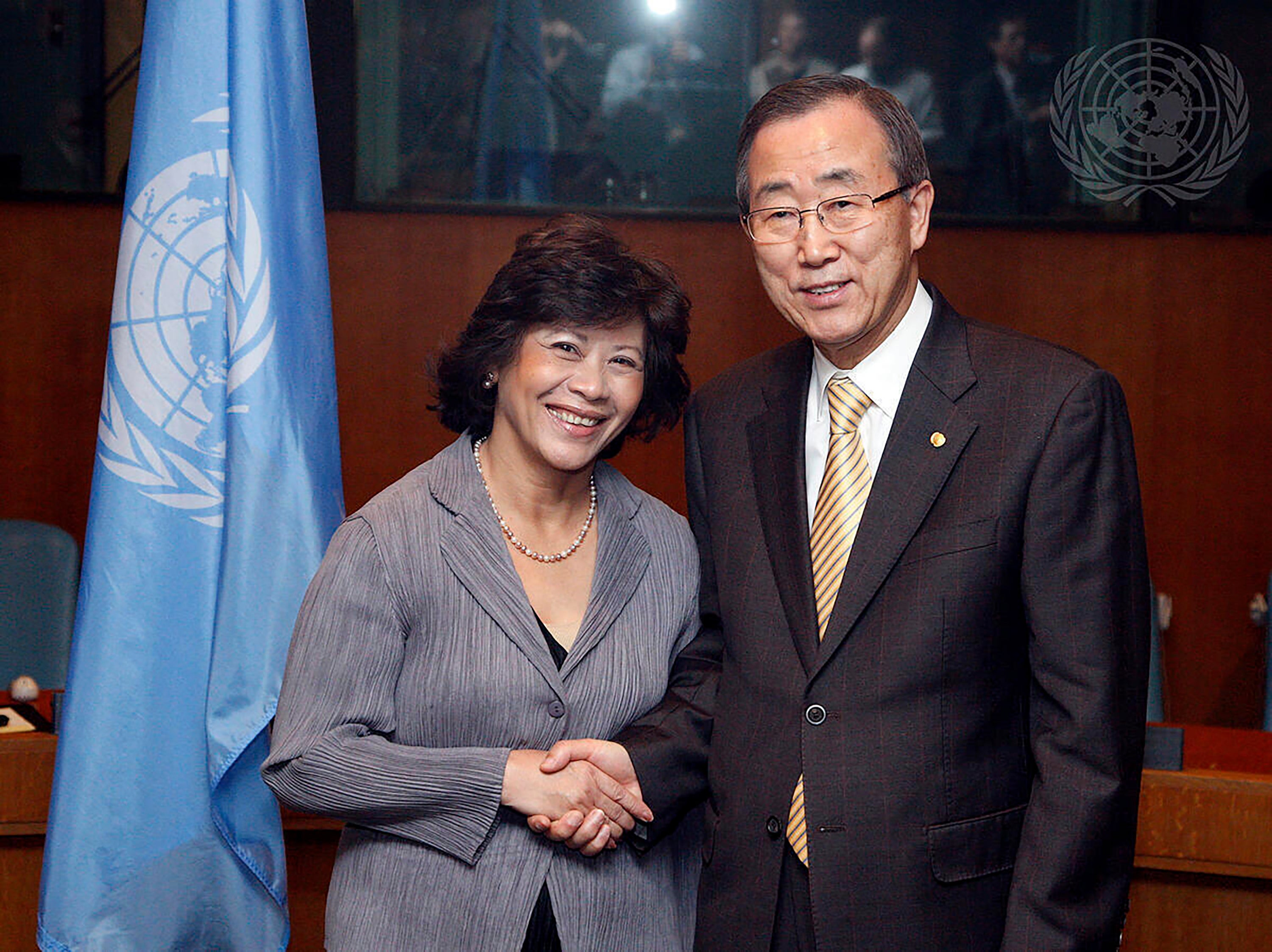Former top UN official appointed next UN envoy for Myanmar
U.N. Secretary-General Antonio Guterres has announced the appointment of former U.N. undersecretary-general Noeleen Heyzer of Singapore as the new U.N. special envoy for conflict-torn Myanmar

Your support helps us to tell the story
From reproductive rights to climate change to Big Tech, The Independent is on the ground when the story is developing. Whether it's investigating the financials of Elon Musk's pro-Trump PAC or producing our latest documentary, 'The A Word', which shines a light on the American women fighting for reproductive rights, we know how important it is to parse out the facts from the messaging.
At such a critical moment in US history, we need reporters on the ground. Your donation allows us to keep sending journalists to speak to both sides of the story.
The Independent is trusted by Americans across the entire political spectrum. And unlike many other quality news outlets, we choose not to lock Americans out of our reporting and analysis with paywalls. We believe quality journalism should be available to everyone, paid for by those who can afford it.
Your support makes all the difference.Secretary-General Antonio Guterres on Monday announced the appointment of former U.N. undersecretary-general Noeleen Heyzer of Singapore as the new U.N. special envoy for conflict-torn Myanmar
She will succeed Christine Schraner Burgener of Switzerland whose 3½ years in the post saw moves toward democracy dashed in a military takeover of the Southeast Asian nation last February that led to nationwide protests. Her term ends Sunday.
Heyzer served in 1994-2007 as executive director of UNIFEM, one of the forerunners of the umbrella U.N. organization for women known as UN Women. She was the first woman to serve as executive secretary of the United Nations Economic and Social Commission for Asia and the Pacific, in 2007-2014, a post that gave her the rank of an undersecretary-general.
She is currently a member of Guterres’ High-Level Advisory Board on Mediation, a member of the governing board of the Lee Kuan Yew School of Public Policy at the National University of Singapore, and a distinguished fellow of the Singapore Management University and the S. Rajaratnam School of International Studies.
Both Singapore and Myanmar are members of the 10-member Association of Southeast Asian Nations, and Schraner Burgener told The Associated Press on Monday: “I think the secretary-general certainly made the right decision to have a person who knows the region, who knows how to deal in a diplomatic way.”
The outgoing U.N. envoy said her successor doesn’t need advice, but if she were continuing in the post “then I would clearly try and continue to help the people.”
When Myanmar’s army seized power from the government of Aung San Suu Kyi on Feb. 1, it claimed with scant evidence that the general election her party won last November in a landslide was marred by widespread voting fraud. The takeover sparked street protests that security forces tried to crush and has moved to violence and clashes throughout the country with ethnic armed groups and so-called Peoples Defense Forces. The pushback has left more than 1,100 people dead, Schraner Burgener says.
ASEAN has called for an end to violence, for dialogue, and a visit by an envoy, but the junta leaders refused to allow a meeting with Suu Kyi so the visit was canceled. In their sharpest rebuke yet of the military takeover, ASEAN foreign ministers did not invite Myanmar’s military leader, Senior Gen. Min Aung Hlaing, to the association’s Oct. 26-28 summit where the crisis in the country is on the agenda.
The U.N. said that in 2008-2009, Heyzer worked closely with ASEAN, the government of Myanmar and the United Nations in recovery efforts following Cyclone Nargis and led a dialogue with Myanmar’s leaders on development and poverty reduction.